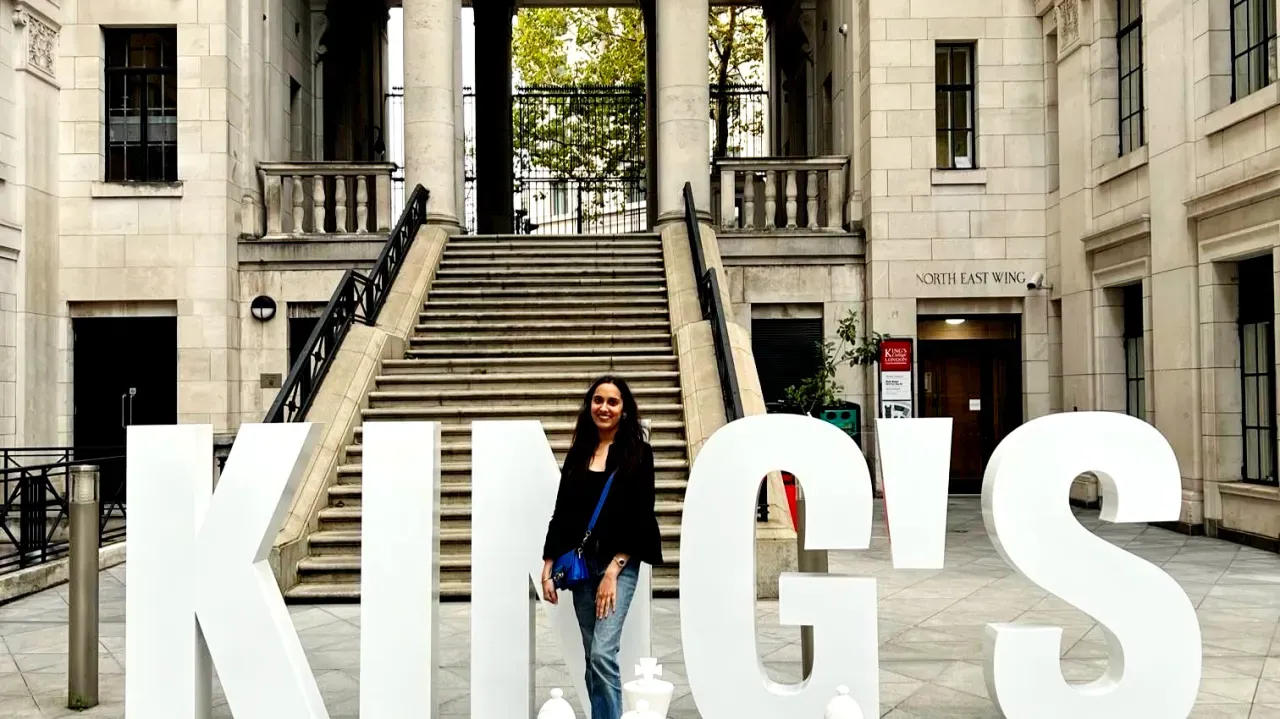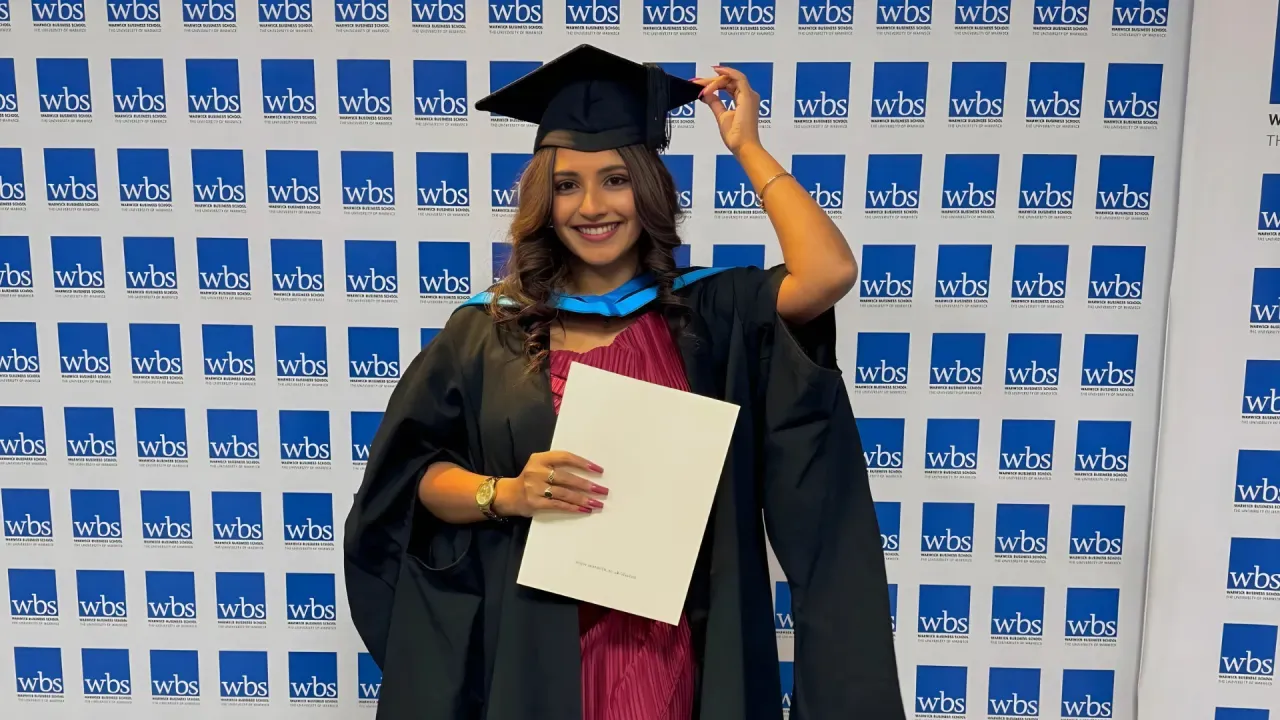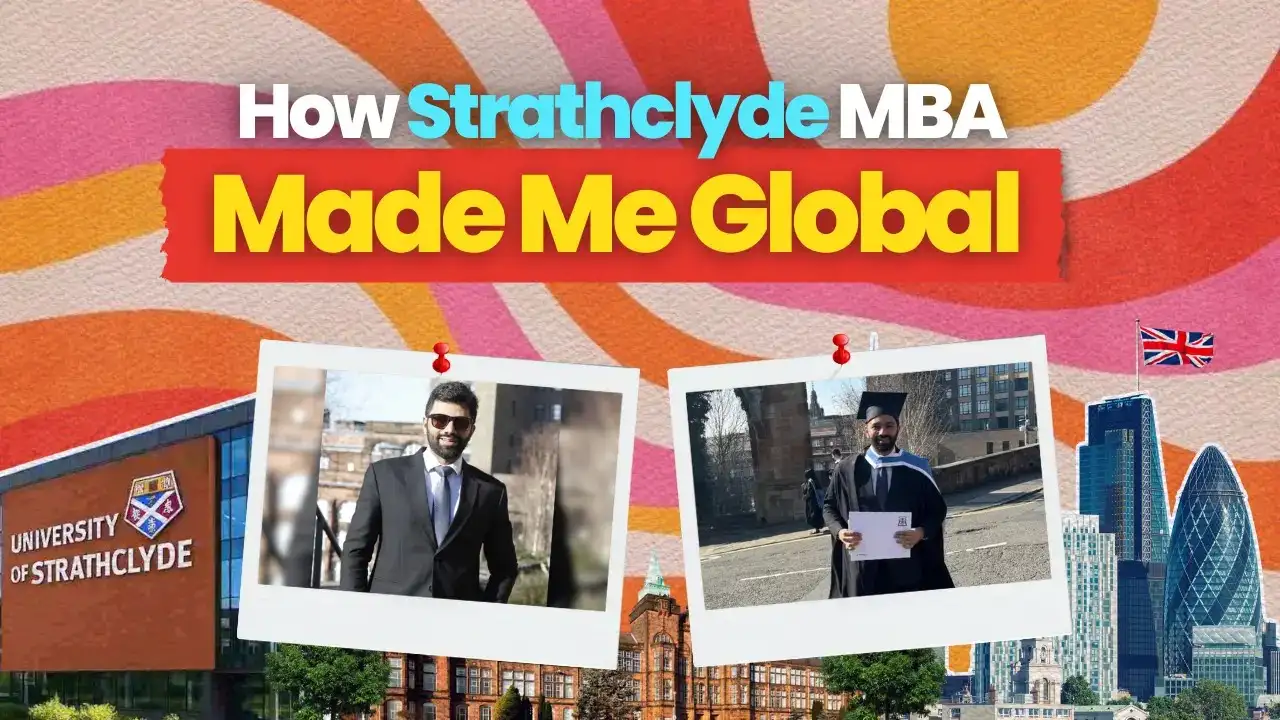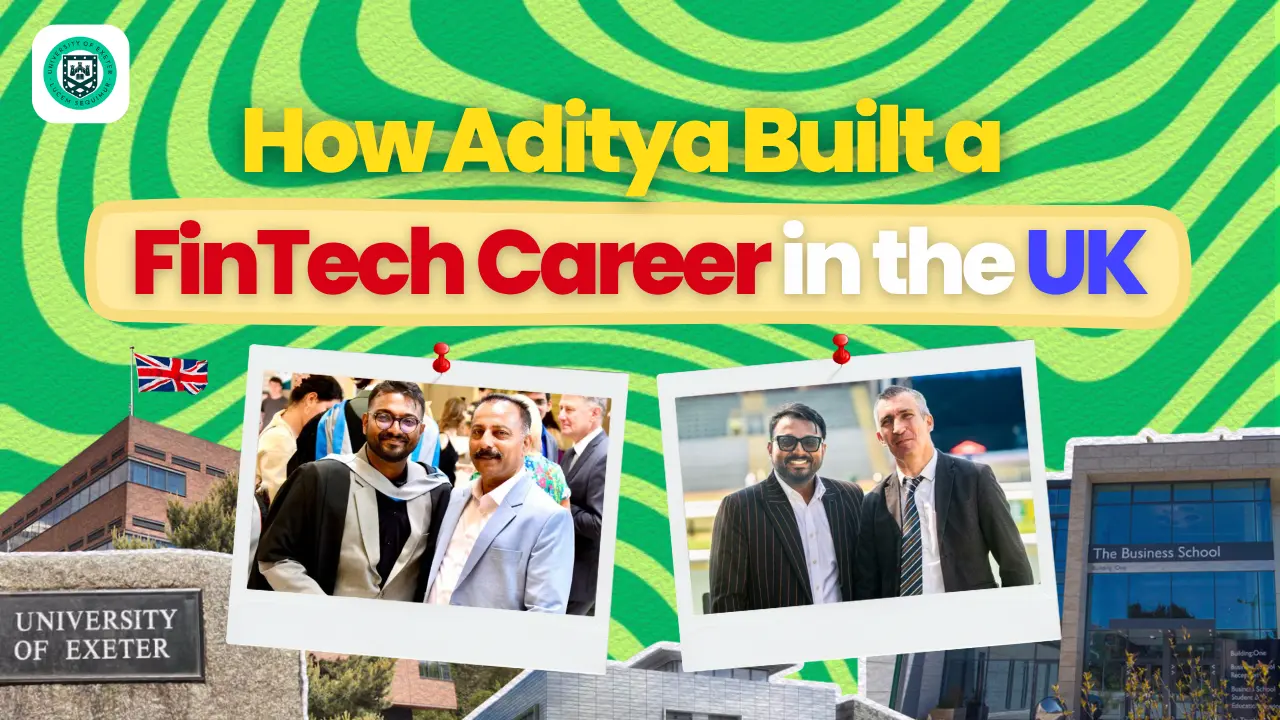Student Reviews
How to Stand Out as an Indian Student in a Competitive UK Job Market

I’m Sanya Arora , and I’m currently doing media planning at EssenceMedicom, a part of GroupM in the UK. I got into this after pursuing my Master of International Marketing at King’s College, London.
I spoke with Leap about my journey for their expert student series—Indians who had studied abroad recently and are still in that country pursuing their dreams—because I want to help others wanting to take the same career jump that I made.
How was the process of culturally assimilating into the environment? How was the vibe?
There's so many Indians in London and before coming you get all these Whatsapp groups and Instagram groups so you can connect with other Indians. You know that you do have people similar to you, who are leaving home to study abroad.
When you come as a student to a new country, it's much easier to make friends
How to manage the cost
I didn’t get a scholarship, but I was fortunate enough to have my family’s support. I do know some friends who had to take out a loan, but I think the advantage here is that the UK allows 20 hours of work as a student.
You can work as a bartender or in a restaurant, somebody I know was working in a football stadium during events. So there are opportunities if somebody wants to work as a student.
How was the experience?
The great part is that a lot of education is practical. For one of the assignments we had to go to Regent Street, which is one of the busiest shopping streets in London. And we had to make a presentation on how we feel it can be better and we can attract more people.
So what are the shops? What can be done? Etc, we presented it to the client. We also did something for breast cancer awareness where we worked with a charity
So we get to do a lot of practical projects. It's not only theoretical. The best part is that you're just in the real world, which is important because if you're coming to the UK, you don't want to just be learning from textbooks, which you can do anywhere.
Compared to somewhere like Delhi University for example. I had a great three years there, learnt a lot, but it's a lot of theory, whereas in the UK, you get to put your theory in action.
A lot of people in my course didn’t have work experience like I did, so especially for them, it's good that they first got this experience of working where you have to do things yourself. This helps them in the workplace and prepare for a job.

How did you find a job?
I started applying from June last year, though my course finished in September, and I got the job in January this year. I'm very grateful and very happy at my current job.
The main difficulty I faced is that a lot of companies don't value your Indian work experience, because for employers, working in the UK is quite different from working in India. I had this impression that, oh, I have so much work experience but they will not give you a preference just because you have X number of years of work experience.
That was the biggest eye opener, which is why it's absolutely fine for people to come without a lot of work experience.
You also obviously need to apply a lot. You need to change cover letters for each job. Also, in your resume – at least King's offers this very good system, which I'm sure other universities do as well, where you can submit your resume on their portal and it tells you certain words that you should use or replace to make it stand out. Another huge help was the college career cell.
Most importantly, you should quantify everything in your resume. For example, if I was doing social media, engagement went up by X percent or if a particular campaign received a certain number of impressions because the recruiters like to read how you make a difference.
How did I end up studying abroad?
I was born in Delhi. I lived in Bombay for a bit, I lived in Singapore for eight years, but class eight onwards I was in Delhi. I did humanities in school, and Philosophy in undergrad in North Campus. Then for my postgraduate, I studied journalism which is what I really wanted to, from The Indian Institute of Mass Communication.
I was working at a news agency in India after my undergrad and I was so young, so it seemed like the right age for some foreign exposure. I had never lived alone either so the UK with its large Indian population and English language seemed like a good option. I did some research and found that Cardiff University had one of the best journalism programs.
After that I came back home, and I was working with the entertainment division of Times of India group. I was doing a lot of brand solutions and brand strategy and working with global clients, and really enjoyed that, so I pivoted to marketing. I wanted to understand more about these campaigns and the workflow. And it's tough to get a job in marketing without a degree.
I was still in my 20s, and I knew the UK education system from my time in Cardiff, so it just made sense, and I was certain that I wanted to be in London. I had already lived in a small UK town, and all the best marketing schools are in London, so I decided to only apply to places in London.
Luckily, I got admission to King's College, which has a pretty good ranking for marketing.
Why London specifically?
For me it was about being closer to home, and London is not too far from India. The time difference is also not so bad, so it's easy to connect with family at any time.
Also, in the US, Canada and Australia, your masters are for two years, I did not want to spend two years doing another degree. And I wasn't sure how the work visas work there. But now the UK has a graduate visa, which I think is a great opportunity, so it made sense.
And I know a lot of people who get stressed over applying, but trust me. The process isn’t difficult at all.
Advice would you give to students who want to study in the UK
Apply to a lot of places. I applied to five universities and I did not get five offers. I did get some rejections, so apply a lot and keep your options open.
If you want to work in the UK, start applying for jobs before your course ends, because it does take time to find something. Do your dissertation and apply side by side. The advantage of applying early is at least you get an idea of how the market is and after every interview, you can learn from it.
How is working in the UK different?
The UK really values work life balance. Your managers don't have your WhatsApp number, working overtime is quite rare and you're encouraged to take holidays. I think we have 25 holidays which we're allowed to take in a year not including bank holidays and if you like you know probably leave them for the end like your manager will ask you, “Why aren't you taking your leaves?”, “You know you should use some leaves you've been working on for a long time.”etc.
I'm probably making it sound like it's all chill and happy, but you have to work hard, you feel the need to prove yourself to show that the company hiring me was a good investment. They could have hired somebody who doesn't have all these visa issues but they hired you, so when your visa ends, they might have to sponsor you. That’s why I think you feel the desire to work harder, and make the company realise that hiring you was worth all the investment.



